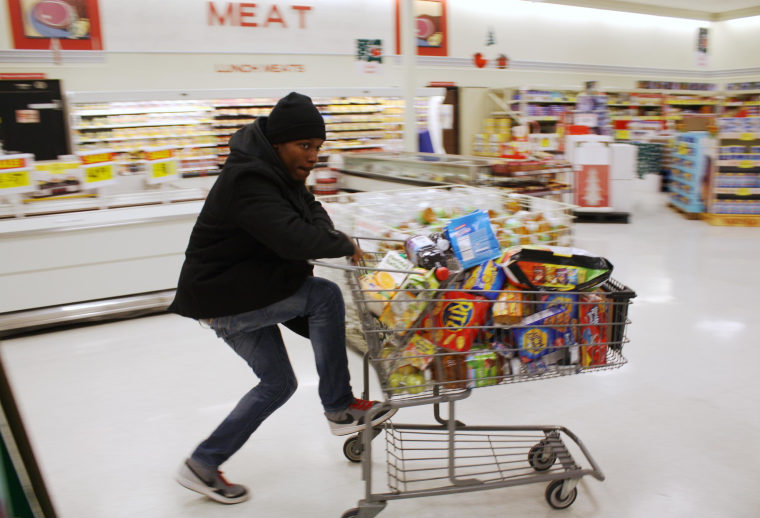Charging state sales tax on groceries harms the poor, local economies and the state budget, according to a new report that found Kansas’ highest-in-the-nation levy sends residents regularly scurrying across the border to fill their larders.
Kansas is one of only 14 states that charge sales tax on groceries, and one of only seven to charge the full state tax rate. When the Legislature hiked its sales tax to 6.5 percent in July 2015, its tax rate on food became the highest in the nation, according to the report by the Kansas Public Finance Center at Wichita State University.
And many residents pay even more to eat. The report noted that local county and city governments can also levy their own taxes, which means residents in some areas are taxed as much as 10.5 percent for groceries.
“Particularly if you’re on a fixed income, it makes a lot of sense to drive across the state and buy food where it’s a lot cheaper,” said Ashley Jones-Wisner, state policy manager for KC Healthy Kids, the nonprofit advocacy group that commissioned the report.
Thirty-five of the state’s 105 counties share a border with a neighboring state that does not impose a sales tax on food or has a lower rate. For example, most grocery items are exempt from state sales tax in neighboring Colorado, and Missouri only imposes a 1.2 percent tax on groceries. That means it’s relatively easy for many residents to cross the state line for groceries, a practice that cost Kansas $345.6 million in food sales in 2013, when Kansas’ base sales tax was 6.15 percent, the study concluded. That, in turn, cost the state $21.2 million in lost tax revenue, it said.
Budget Deficit to Rise to $544B This Year, New CBO Forecast Says
Because sales taxes often vary by county, Kansas residents also drive to neighboring counties with a lower sales tax. According to the report, for every 1 percent increase in tax between nearby counties and states, there’s a $101 drop in food sales per capita in the area with the higher tax.
The study noted that high sales taxes ultimately hurt low-income families and local economies, presenting “barriers … to health retail and healthy food in general,” Wisner said.
According to a separate report by the Institute on Taxation and Public Policy, the state’s reliance on sales tax hurts Kansas’ poorest residents. The lowest 20 percent of income earners in Kansas pay an average of 11.1 percent of their income in state and local taxes, compared with 3.6 percent for the top 1 percent of earners, it said.
Why Billions of Dollars in Estate Taxes Go Uncollected
Ken Kriz, director of the Kansas Public Finance Center, said the studies both confirm “many other research articles and writings on the subject” as far as the burden that high sales tax impose on low-income households.
“I would also point out that this is the group which is likely less able to move their shopping to lower tax rate areas,” he said. “So there is in a sense a double whammy on this group, they bear more of the burden of the tax and it is difficult for them to avoid it.”

